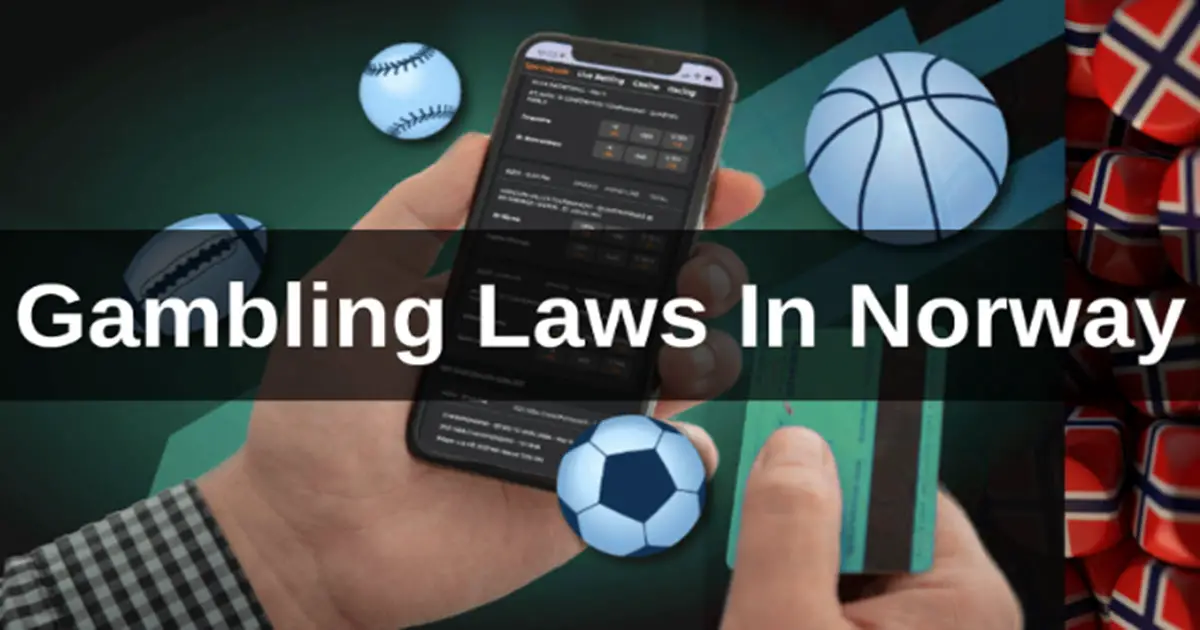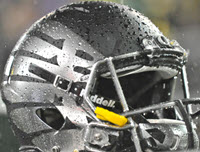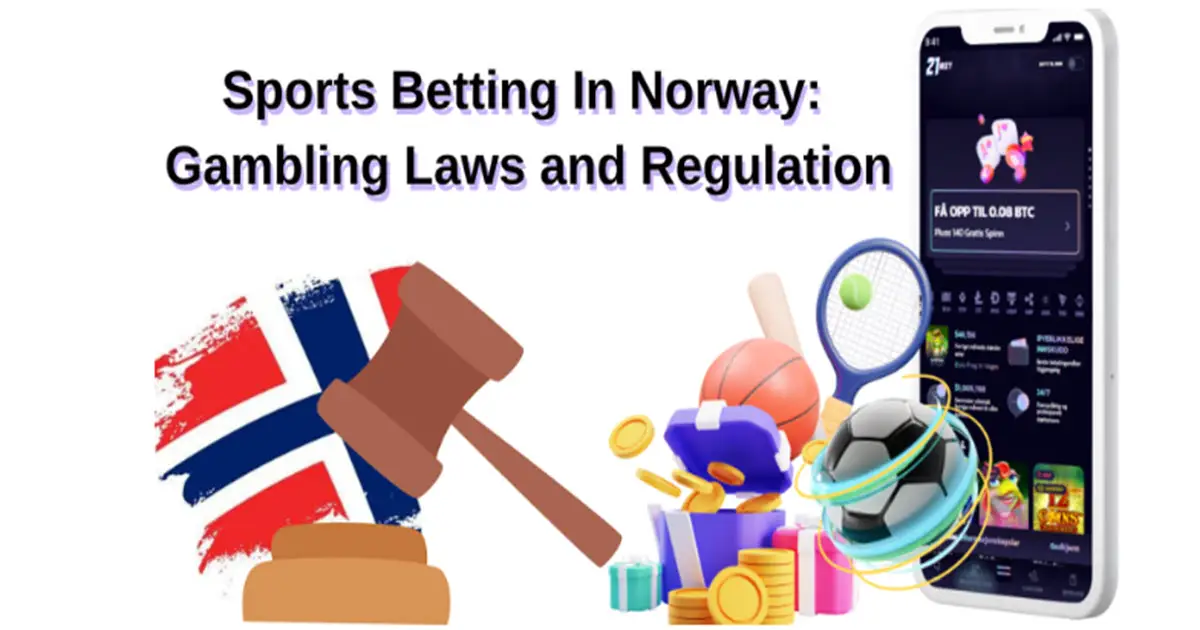At first glance, Norwegian gambling regulations seem excessively prohibitive. But if you look deeper, Norway-based players have plentiful opportunities to bet on varied sports without fearing any legal consequences. In the article below, Hans Madsen, the chief editor at NorgeCasinoHub and a gambling expert, will give professional insight into the legitimacy of sports gambling in Norway, scrutinizing the associated laws and legal stipulations.
Is Sport Betting Legal in Norway?
Despite the complex legal regulations, on sports betting Norway has no strict bans. It is completely legal to bet real money on horse racing, football, skiing, handball, tennis, and more. The Norway sports betting and gambling scene has its nuances. And here’s what’s important to keep in mind with the advice of norgecasinohub.com:
- Only persons above the legal age of 18 years can gamble or bet on sports using real money wagers.
- Norwegians prefer online gambling sites and sportsbooks with a Malta license, due to tax-free winnings.
- Norwegian laws do not define a legal age sufficient to play scratch cards. From 2021 on, companies from abroad cannot have legal permission to advertise their gambling and sportsbook venues, services, and products in Norway.
- If a Norwegian company runs a gambling or sportsbook business in a foreign country, it can only advertise through foreign media channels.
Gambling Monopoly in Norway: Norsk Tipping and Norsk Riskoto
The industry of gambling and sports betting in Norway is monopolized by the state. Two state-owned companies have nearly exclusive rights for the provision of gambling services. Activities of foreign operators are prohibited, and there isn’t an established procedure for their licensing. Nor can they advertise their services.
Norsk Riskoto has been delivering sports betting Norway services on horse racing (totalisator) since the day it was established. In turn, Norsk Tipping provides many sports betting varieties, slots and other games of chance, lotteries, and scratch cards. Worth noting, poker is prohibited in Norway, except for the annual National Poker Championships and low-stake poker sessions at private homes.

Gambling Laws in Norway
The government always strived to control online casinos in Norway through strict regulations. In 1902, the Penal Code prohibited the majority of luck-based gambling games, only allowing a few provided by license holders. This strict ban was made more lenient through three Acts passed during the 20th century:
- The Totalisator Act: enforced in 1927, this Act became the cornerstone of the state’s monopoly on gambling services. Norsk Riksoto Foundation was eventually granted exclusive rights for totalisator sports betting in Norway. The Ministry of Agriculture got the task of supervising the Foundation’s gambling activities.
- The Gaming Act: this law was put into effect in 1992. It grants exclusive, monopoly rights to Norsk Tipping regarding sports betting on football matches and number games of the lottery type. The Ministry of Culture and Equality acts as the regulatory body.
- The Lottery Act: passed at the dawn of online gambling, in 1995, this law gave comprehensive descriptions and definitions to numerous gambling game varieties with real money wagering, including slot machines and lotteries. Only socially-oriented, charity organizations are granted gambling licenses under this Act. However, private companies can run lotteries and other games on their behalf.
How MGA and Other Gambling Licenses Impact the Gambling Industry?
The presence of foreign operators in the market of online gambling Norway is crucial, offering alternatives to the monopolized domestic market. Casinos and sportsbooks licensed in the following jurisdictions are recommended to Norwegian gamblers:
- Malta Gaming Authority has several licenses for gambling and betting. It ranks among the top licensing destinations for European gambling sites. MGA-licensed online casinos in Norway are favored by players for tax-free winnings.
- UK Gambling Commission has an immense reputation as one of the strictest regulating bodies in Europe, fully focused on guaranteeing player safety and game fairness.
- Curacao eGaming is known for affordable licensing through a simplified procedure. A Curacao license allows many brand-new casinos to enter the Norwegian market – and new gambling platforms are known to offer the most attractive terms.
- Gibraltar Remote Gambling boasts a solid reputation among both casino operators and gamblers. It’s known as notoriously strict and selective towards operators, while offering tax-free winnings and cryptocurrency gambling opportunities to gamblers.
- Alderney Gambling Control Commission is a leading licensing body, invariably strict and scrupulous towards its licensees. All AGCC-licensed casinos boast transparency and a positive gambling environment.
Winning is fun, but so is getting paid quickly! (Photo by Katrin Bolovtsova on Pixels.com)
Tax Obligations
For enthusiasts of gambling and sports betting, Norway imposes not only legal restrictions but also tax obligations on income from such activities. Certain provisions in Norwegian Tax Act #14 (March 26th, 1999) covers incidental gambling winnings of taxpayers. A 27% tax rate applies to winnings over NOK 10,000 on a single bet.
The Norwegian government is fully committed to battling against illicit and fraudulent monetary activities in the gambling industry. Its dedication to guaranteeing the trustworthiness and integrity of operators found expression in Money Laundering Act #23 (June 1st, 2018). This legal document applies to all gambling and betting activities that require licensing.
Certain specific regulations – particularly, the Regulation to Prohibit Gambling Payments without Norwegian Authorization #184 (February 19th, 2010) – convey the government’s negative stance on financial transactions for unauthorized gambling activities. In practice, the state’s attempt to ban bank transactions to offshore gambling sites has proved relatively ineffective.
How to Gamble Legally in Norway
Regarding online gambling Norway has numerous rules and restrictions. But interested players can bet on sports or gamble at both foreign and state-owned portals. Despite the legal pressure, the adaptable and resilient industry of online gambling is thriving. Here are the best tips for Norwegian players to navigate the nuanced legal gambling terrain.
- Understand the legal regulations – aiming to protect players, they also impose strict restrictions on gambling and betting activities inside the country.
- Keep an eye out for foreign sites that accept Norwegian players – a guide on how to find the best online casino in Norway will come in handy, listing portals with optimal terms of service and bonuses.
- Get around financial barriers – although the Norwegian government has been trying to ban transactions to offshore sites, gambling platforms have invented workarounds to give you a legal gambling experience with seamless payments.
- Engage only with licensed gambling and betting sites – licensed operators are obliged to comply with international legal regulations.
- Get familiar with tax obligations – understand when your winnings are taxable, and whether there are ways to avoid taxation (for example, Malta-licensed gambling sites).
- Gamble responsibly, prioritizing safety and security – you won’t fall victim to scams and frauds at gambling destinations that are thoroughly certified for fairness and security and actively promote a responsible approach.
Final words
The market of online gambling Norway is rather complicated and nuanced. The government monopoly is furthered by restrictive legislation that aims to complicate Norwegian players’ access to foreign gambling operators. The state has been introducing all these measures to protect players and prevent problematic experiences. But the Norwegian gambling community is craving diversity. Foreign sportsbooks and gambling sites are ready to deliver it, finding workarounds to circumvent the legal barriers.
OregonReigns
Lakeside, Oregon

OregonReigns is an occasional contributor to FishDuck and loves his Ducks!

